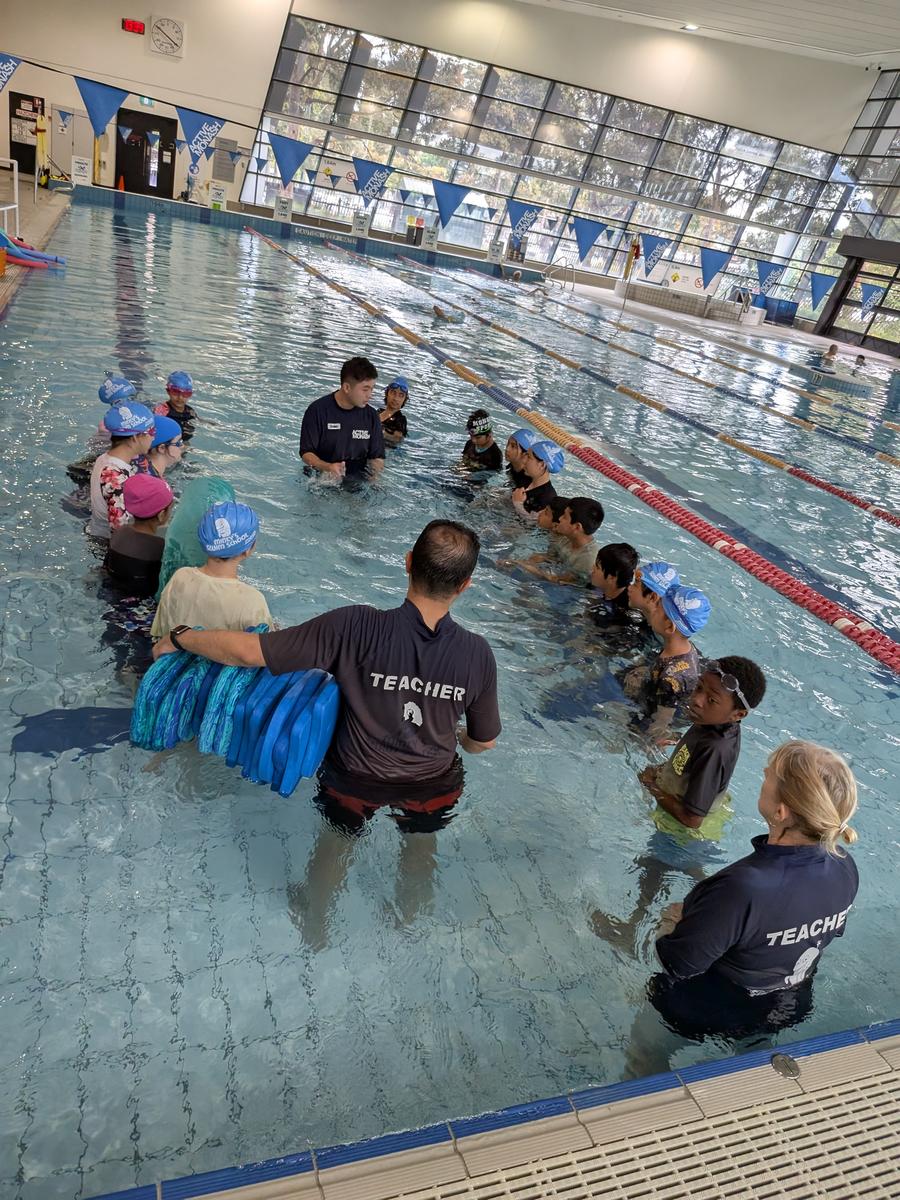Year 5/6 News
Radhika and Precious

Year 5/6 News
Radhika and Precious
In the last two weeks we had swimming lessons at teh Clayton Aquatics and Health Club. I joined the Aqua group with Zeel, Alayna, Adelaide, Xin-Xin, Isaiah, and Zahra T. Initially, I struggled with breathing and techniques like freestyle and torpedo. Throughout the week, we practiced backstroke, floating, and steady breathing while playing games like Underwater Limbo to improve stamina. On Thursday, we had extended practice with backstroke, torpedo, and freestyle, finishing with games like “sinkies” and “cannonball” contests. Reflecting on my progress, I’ve set two goals: improving stamina by breathing steadily during freestyle and strengthening my kicks by straightening my feet. It’s been a fun and challenging start to swimming lessons!
Bisma Naeem 5/6A
I have been taught way more than just swimming. I have been taught the benefits of knowing how to swim, by the very kind swimming instructors and why it is important to be able to know the simple/basic swimming skills. I am very excited for the next following lessons that we are going to be doing for this last week.
Overall, the swimming lessons were a great and fun experience, for not only me but all the others as well! I would love to do this again soon!!
Adele Puna 5/6A


This week, our school took another step towards sustainability by installing an earthworm farm! This eco-friendly addition is part of our ongoing efforts to reduce waste and promote environmental awareness among our students.
Earth worms are great for gardens because they bore through soil, poop and pee. Worm pee is called worm tea, which is great for gardens. Did you know that earth worms have 5 hearts and 5 brains!? Earth worms can’t eat dairy, meat, and citrus. Earth worms eat every 2 to 3 weeks. I wondered why do earth worms like the dark? The answer to this question is that they don’t like bright light because worms have a kind of slime in their skin, that if the worms are left in the sun for too long, their skin dries up, and it makes the worm unable to breathe, so they die. Worms like dirt because soil can absorb water, and it helps the worms stay wet. Worms have no eyes.
By Adelaide Toups-Dugas
We are focusing on converting between millilitres (mL), litres (L), and kilolitres (kL). Students are learning how these units relate to each other in the metric system and practising their skills in solving real-world problems.
We are learning to write stories using ‘show don’t tell’, this means describing actions, thoughts, feelings, and surroundings to immerse the reader in the story, rather than directly stating facts or emotions.

